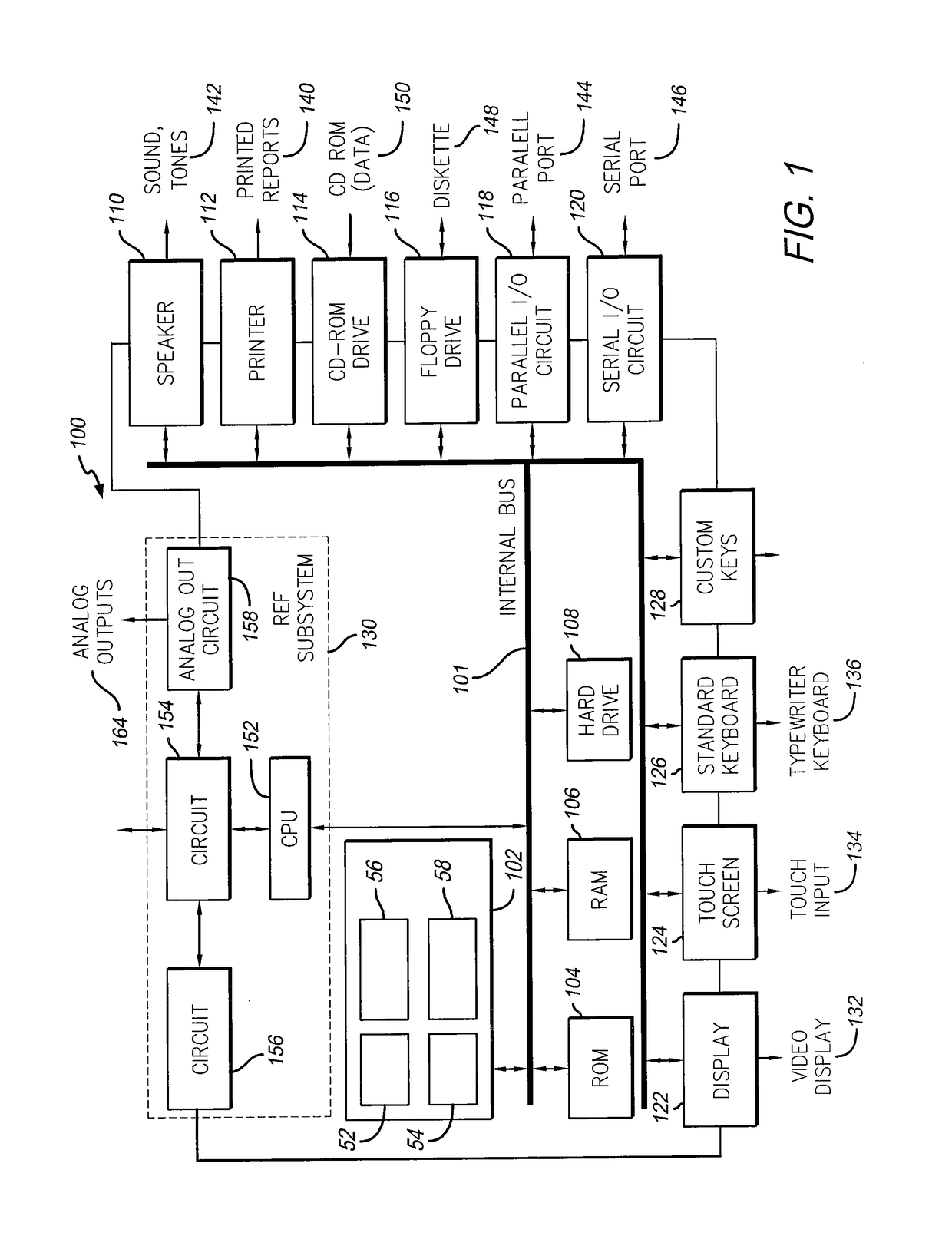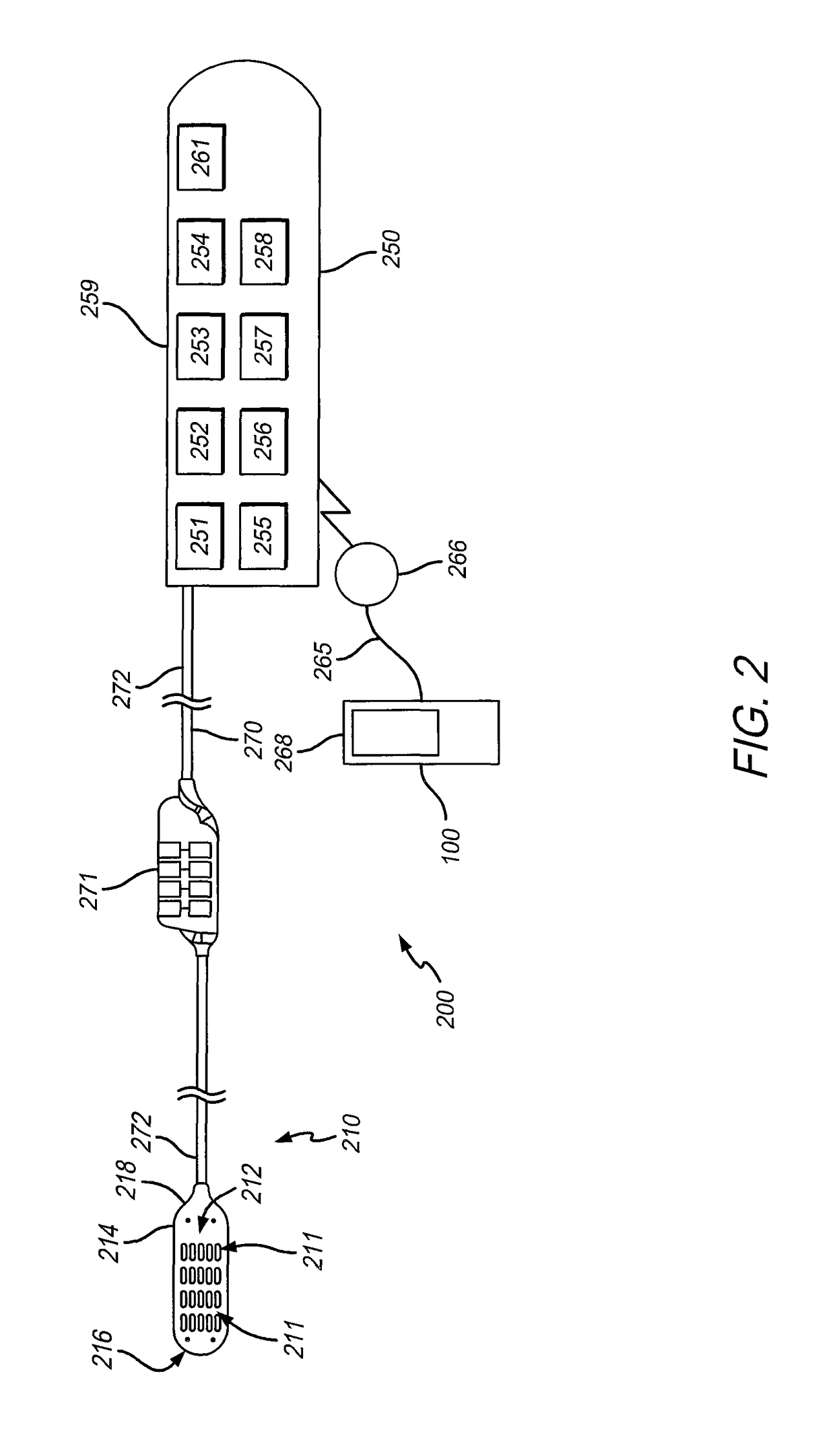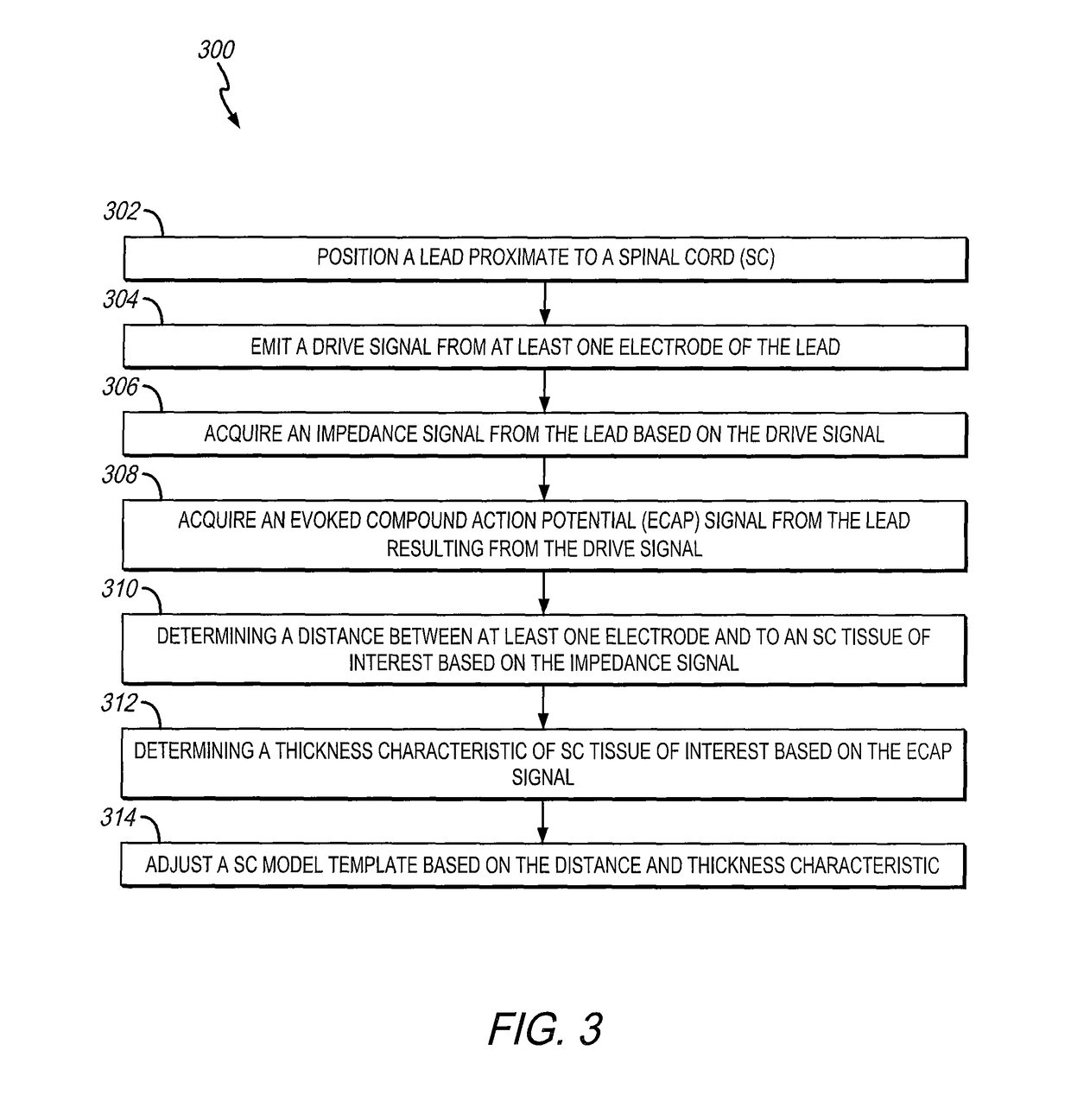Spinal cord stimulation guidance system and method of use
a spinal cord stimulation and guidance system technology, applied in the field of neurostimulation systems, can solve the problems of difficult ascertaining the anatomy of the spinal cord, difficult to use, and difficult to use the mri compatible scs system availabl
- Summary
- Abstract
- Description
- Claims
- Application Information
AI Technical Summary
Benefits of technology
Problems solved by technology
Method used
Image
Examples
Embodiment Construction
[0041]While multiple embodiments are described, still other embodiments of the described subject matter will become apparent to those skilled in the art from the following detailed description and drawings, which show and describe illustrative embodiments of disclosed inventive subject matter. As will be realized, the inventive subject matter is capable of modifications in various aspects, all without departing from the spirit and scope of the described subject matter. Accordingly, the drawings and detailed description are to be regarded as illustrative in nature and not restrictive.
[0042]Embodiments described herein include a patient-specific spinal cord stimulation (SCS) programming guidance system 100 that may be used during SCS implantation, during office visits, and the like. The system 100 may be used by a clinician and / or patient to determine and / or select optimal SCS settings (e.g., amplitude, duration, frequency, type of stimulation pulses, selection of electrode configurat...
PUM
 Login to View More
Login to View More Abstract
Description
Claims
Application Information
 Login to View More
Login to View More - R&D
- Intellectual Property
- Life Sciences
- Materials
- Tech Scout
- Unparalleled Data Quality
- Higher Quality Content
- 60% Fewer Hallucinations
Browse by: Latest US Patents, China's latest patents, Technical Efficacy Thesaurus, Application Domain, Technology Topic, Popular Technical Reports.
© 2025 PatSnap. All rights reserved.Legal|Privacy policy|Modern Slavery Act Transparency Statement|Sitemap|About US| Contact US: help@patsnap.com



